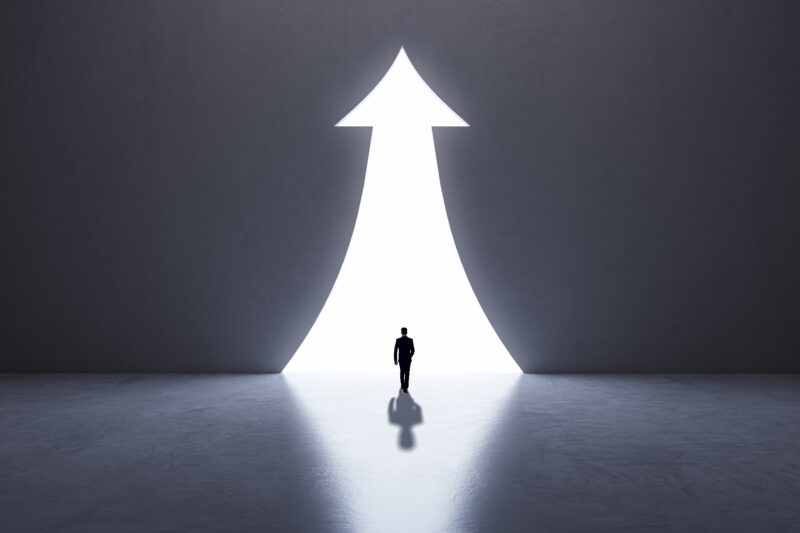What does it feel like to burn out at work? How do I know if I’m burning out? Do I have to leave my job if I’m burning out? These are just some of the questions I’m frequently asked after I talk about my own experience with burnout toward the end of my law practice. I wanted to share my story in a bit more detail to hopefully help others recognize what burnout looks like, prompt organizations to start to take this issue seriously, and most importantly, send the message that if this feels like what you’re experiencing, you are not alone.
My burnout story starts back in 2008. If you had met me then, you would have seen a successful lawyer, on top of her game, closing several multi-million-dollar commercial real estate deals each month. You may have even thought, “She has it all.” But here’s what you would have missed.
First, I was exhausted, and it was a different kind of tired than I had ever experienced. Getting out of bed to go to work had become exceedingly difficult, if not emotionally painful. My pop out of bed, ready to start the week, had become a slow drop and thud. Weekends weren’t long enough to fully recover (even when I didn’t work), and vacations, when I actually took them, provided only temporary relief. Every work or life curveball, no matter how minor, became a major deal. I remember my mom calling and asking me to pick up some groceries on my way out to her house, and I had a level 10 reaction to her very basic request. That was not my personality, and it was a red flag.
Second, I had become cynical, even by lawyer standards. People generally just started to bug me and rub me the wrong way. I remember working with clients, and when they came to me with a legal issue, outwardly I was very professional, but inwardly I would roll my eyes and think, “Really? You can’t handle this on your own?” Or “Didn’t we already talk about this?” Disconnecting from people was unusual for me, and I just wanted to be left alone in my office.
Third, I started to feel ineffective. I never lost confidence in my ability to be a good lawyer, but I stopped seeing a clear path for myself through the legal profession. I had worked at a small, boutique firm, then at a large law firm, and then in-house. All of those progression boxes had been checked. Now what?
As I discovered more than a year later, those three big warning signs – chronic exhaustion, cynicism and feeling ineffective – are the three big dimensions of burnout. Other warning signs include forgetfulness or impaired concentration and attention, getting sick more frequently, anger, anxiety, depression, pessimism, isolation, increased irritability and lack of productivity and poor performance.
I think of burnout as a gateway process because it can invite in other physical, mental, and emotional issues, and for me, it was chronic anxiety. Burnout resurrected the panic attacks that I thought I had successfully eradicated years earlier. I experienced my first panic attack as a teenager. It woke me up in the middle of the night, and I was convinced that I was having a heart attack. Scared and confused, my parents got me into the doctor the next morning, but it would be months before I had an official diagnosis. My panic attacks came and went during periods of very high stress in my life – during finals, during law school, and then when I burned out. Panic attacks are a bit of a misnomer because most people don’t outwardly look like they are panicking when they have one. I have had them sitting in a movie theater, driving a car, riding in a car, and sitting on a park bench, both alone and with other people around me. Panic attacks feel like a rush of sudden dread that leads you to believe death is imminent.
In addition, the high levels of stress caused such severe stomach aches that I ended up in the emergency room twice. I saw more than half a dozen doctors during this time, and none of them mentioned burnout, work, or even asked how I was doing generally in life. If you’re a healthcare professional reading this, please ask. I was at a point where if someone had asked me how I was doing, I literally would have burst into tears, revealing the truth I had been keeping a secret because I didn’t want to seem like the odd lawyer at work who couldn’t hack it. As a result, I ended up diagnosing my own burnout, which I could only do after I left my job and reflected back on what happened.
My burnout was severe, but it didn’t start that way. Burnout is very easily measured, and it’s a first step I always recommend to the organizations I work with on these topics. Burnout costs the workplace hundreds of millions of dollars each year; in fact, one-third of the cost of physician turnover in healthcare has now been attributed to burnout. While there are fewer studies on burnout in other professions, lawyers, for example, experience exceedingly high rates of depression, anxiety, and stress, all of which can co-exist with or drive burnout. Other research studies and articles generally indicate a prevalence of burnout among teachers, health care professionals generally, executives generally, and IT professionals.
So, you’re not alone. There are lots of research-based tools that have been shown to be effective at reducing or preventing burnout, but organizations need to do their part too. Critical ingredients to making progress include leadership prioritization, assessment, structured interventions, and open communication. I invite you to share your story.
Please click here to pre-order my new book, Beating Burnout at Work: Why Teams Hold the Secret to Well-Being and Resilience now. It will be available everywhere on March 16.







